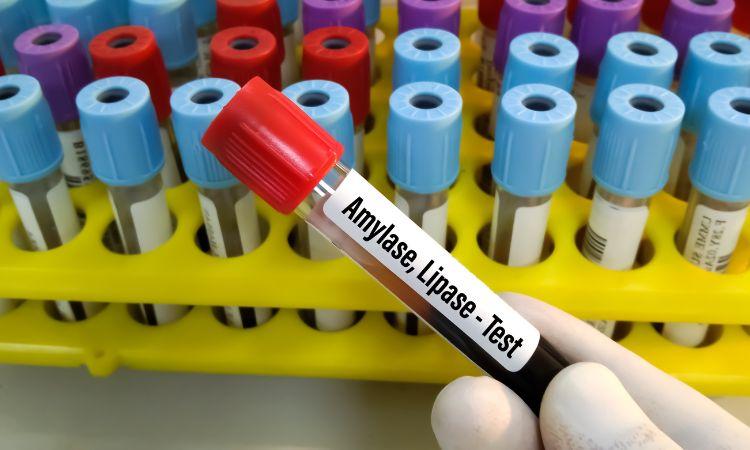The global microbial lipase market size reached nearly USD 619.10 million in 2023. The market is projected to grow at a CAGR of 6.7% between 2024 and 2032 to reach a value of around USD 913.58 million by 2032. These staggering figures underscore the growing importance of microbial lipases in various industries, including pharmaceuticals. In this blog post, we will explore the fascinating world of microbial lipases and their pivotal role in the pharmaceutical sector.
I. Microbial Lipases: An Introduction
Definition and Characteristics of Microbial Lipases
Microbial lipases are a class of enzymes that play a crucial role in the breakdown of fats and lipids. They are produced by various microorganisms such as bacteria and fungi. Unlike animal lipases, microbial lipases offer several advantages, including a wider range of pH and temperature tolerance, making them versatile tools in various industries, including pharmaceuticals.
Sources of Microbial Lipases
Microbial lipases can be sourced from a variety of microorganisms. Bacterial lipases, such as those derived from Pseudomonas and Bacillus species, and fungal lipases from strains like Aspergillus and Rhizopus are commonly used sources. These enzymes can be isolated and purified for specific applications.
Why Microbial Lipases Are of Interest in the Pharmaceutical Sector
The pharmaceutical industry constantly seeks innovative solutions for drug development, delivery, and formulation. Microbial lipases have emerged as valuable biocatalysts in this context due to their ability to work in mild conditions, making them suitable for various pharmaceutical applications.
II. Applications of Microbial Lipases in Pharmaceuticals
Lipid-Based Drug Delivery Systems
Lipid-based drug delivery systems have gained popularity in recent years due to their potential to enhance the bioavailability of poorly water-soluble drugs. Microbial lipases play a pivotal role in formulating lipid-based drug delivery systems. By breaking down lipids and fats into absorbable forms, they enable drugs to be better absorbed by the body.
Role of Microbial Lipases in Enhancing Drug Bioavailability
One of the key challenges in pharmaceuticals is ensuring that drugs are efficiently absorbed by the body. Lipid-based systems, often containing microbial lipases, help improve drug solubility and absorption in the gastrointestinal tract.
Examples of Drugs Improved by Lipid-Based Formulations
Several drugs have benefited from lipid-based formulations, including anti-cancer agents, antifungal drugs, and poorly water-soluble vitamins. The incorporation of microbial lipases in these formulations has led to increased therapeutic efficacy.
Synthesis of Prodrugs
Prodrugs are inactive drug forms that are converted into their active form in the body. Microbial lipases play a vital role in the synthesis of prodrugs by selectively modifying the parent drug molecule. This process helps in enhancing drug stability, reducing side effects, and improving drug delivery.
How Microbial Lipases Facilitate Prodrug Synthesis
Microbial lipases catalyze specific reactions that can attach or detach chemical groups from drug molecules. This controlled modification allows pharmaceutical companies to design prodrugs that can be activated precisely where and when needed in the body.
Case Studies of Prodrug Development
Numerous prodrugs, such as ACE inhibitors and anticancer agents, have been developed using microbial lipases. These prodrugs have contributed to safer and more effective drug treatments.
Enzyme Replacement Therapy
Enzyme replacement therapy (ERT) is a revolutionary approach in treating genetic disorders caused by the deficiency of specific enzymes. Microbial lipases have found applications in ERT, especially in treating lipid metabolism disorders like Gaucher’s disease and Fabry disease.
Use of Microbial Lipases in Treating Lipid Metabolism Disorders
Patients with lipid metabolism disorders lack specific enzymes needed for lipid breakdown. Microbial lipases, administered as part of ERT, provide the missing enzyme, helping patients manage their condition and improve their quality of life.
Success Stories in Enzyme Replacement Therapy
The success of ERT in treating lipid metabolism disorders has transformed the lives of countless patients. Microbial lipases have played a significant role in the development of these life-changing therapies.
III. Challenges and Considerations
Stability and Formulation Issues
While microbial lipases offer numerous advantages, their stability in pharmaceutical formulations can be a challenge. Enzymes can be sensitive to changes in temperature, pH, and other factors, which can affect their efficacy. Scientists and researchers are continually working to overcome these challenges through innovative formulation techniques and stabilizing agents.
Challenges in Maintaining Lipase Activity in Pharmaceutical Formulations
Factors such as heat, humidity, and the presence of other chemicals can impact the stability and activity of microbial lipases in pharmaceutical products.
Strategies to Overcome Stability Issues
Researchers are developing various strategies, including encapsulation techniques and the use of enzyme stabilizers, to enhance the stability of microbial lipases in pharmaceutical formulations.
Regulatory Considerations
The use of microbial lipases in pharmaceuticals is subject to rigorous regulatory scrutiny. Pharmaceutical companies must comply with stringent quality and safety standards to ensure the efficacy and safety of their products.
Compliance with Pharmaceutical Regulations
Pharmaceutical manufacturers must adhere to regulatory guidelines set by agencies like the FDA (Food and Drug Administration) and EMA (European Medicines Agency) to ensure the safety and effectiveness of their products.
Safety and Quality Standards
Pharmaceutical-grade microbial lipases must meet specific safety and quality standards to be used in drug development and production. Ensuring compliance is essential to avoid regulatory hurdles.
Ethical Concerns
The use of enzymes, including microbial lipases, in pharmaceuticals raises ethical considerations related to their sourcing, production, and application.
Ethical Considerations Related to the Use of Enzymes in Pharmaceuticals
Ethical concerns include issues like the ethical treatment of microorganisms, sustainable sourcing of enzymes, and ensuring ethical practices throughout the supply chain.
Ensuring Responsible and Ethical Enzyme Sourcing
Pharmaceutical companies are increasingly adopting responsible and sustainable sourcing practices to address ethical concerns in enzyme production.
Read More Articles
IV. Future Prospects
Emerging Trends in the Use of Microbial Lipases
The pharmaceutical industry is continually evolving, and so are the applications of microbial lipases. Emerging trends include the development of novel lipid-based drug delivery systems, innovative prodrug designs, and the expansion of enzyme replacement therapy to treat a broader range of genetic disorders.
Research and Development Efforts
Scientists and researchers are actively engaged in the development of new microbial lipases and improved enzyme formulations. This ongoing research is expected to open up new possibilities in drug development and pharmaceutical manufacturing.
Potential Breakthroughs and Innovations in Pharmaceutical Applications
As technology advances and our understanding of enzymes deepens, we can anticipate breakthroughs and innovations that will further enhance the role of microbial lipases in the pharmaceutical sector. These innovations may include more efficient enzyme immobilization techniques, novel enzyme engineering methods, and improved drug delivery systems.
V. Conclusion
In conclusion, microbial lipases have emerged as invaluable tools in the pharmaceutical sector, contributing to drug development, formulation, and therapy. The global microbial lipase market is poised for significant growth, driven by the increasing demand for innovative drug delivery solutions and enzyme replacement therapies. As researchers continue to address challenges and ethical concerns, we can expect microbial lipases to play an even more prominent role in shaping the future of pharmaceuticals, ultimately improving the quality of healthcare worldwide. With their versatility and potential, microbial lipases are set to make a lasting impact on the pharmaceutical industry in the years to come.



